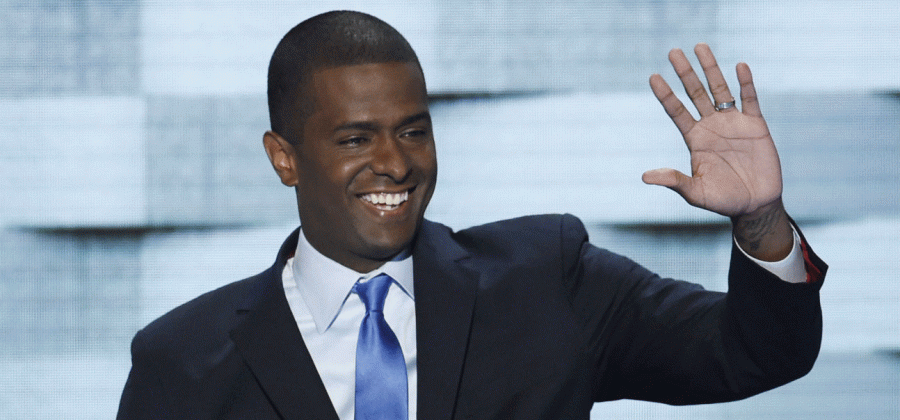Sellers Confronts Pressing Social Issues in Keynote Address
Former legislator, politican and lawyer Bakari Sellers reflects on the American political climate and social justice for the future.
Politician, political commentator and attorney Bakari Sellers visited Colgate University to deliver the keynote address for Rev. Dr. Martin Luther King Jr. Week.
President Brian Casey introduced Sellers in Memorial Chapel, reflecting on the late Dr. Martin Luther King Jr. and his work, stressing his fight for “justice, faith, and prayer.” Casey then related this work to the current political developments in the United States and Sellers’ continuation of Dr. Martin
Luther King’s legacy.
Sellers addressed the audience in a speech connecting Dr. King’s fight for justice to his own work surrounding a variety of pressing issues including education, poverty and domestic violence. Additionally, Sellers used personal experiences and anecdotes to connect with the audience and bring his message to attention.
“The [United States] needs leaders of now, not of tomorrow,” Sellers said.
In his speech, Sellers discussed a “journey to excellence,” one that both he and Dr. King strove for. Sellers explained that on this journey, he asked himself two questions: “how far have we come?” and “where do we go from here?” To answer these questions, he turned to history. In regard to the first question, Sellers used the example of the American education system.
“Over sixty years ago, segregation based on race created unequal education opportunities among the public schools across the United States,” Sellers said.
Sellers then showed that though the U.S. dismantled race-based segregation within the school systems, inequality persists as a result of segregation based on certain area codes, where wealthier areas have better schools than poor areas. He concluded that as a country we made progress, but there is still significant progress to be made.
In response to the second question Sellers vowed to address, “where do we go from here,” Sellers compared police brutality towards African Americans of the Civil Rights era against police brutality in the present. He demonstrated parallels between injustices of both eras, but also highlighted the similarities between the devotion and persistence of African Americans in the 1960s and the present day.
Sellers then emphasized the importance of looking forward to the future and incurring positive change, emphasizing the importance of a shared vision and effort to drive progress.
“[Progress] relies on our ability to dream with our eyes open [and] to strive to be all that you can be,” Sellers said.
From this message, Sellers showed how this dream to be all that he could be manifests in his own life. According to Sellers, becoming the youngest member of a state legislature in the United States became a reality when he worked for it. Sellers explained how once he dedicated himself to living for others, to change the world, he became part of something larger than himself.
Sellers then related back to the legacy of Dr. King to discuss the shared sentiment of “working for the present.” Sellers sympathized with Dr. King in the “fierce urgency of now” to emphasize the importance of eliciting impactful change in the present, not simply for the future.
Sellers opened the discussion to questions posed by Colgate community members. During this question and answer session, a variety of topics emerged, including Sellers’ own work as a politician and attorney, current politics and the media. Various responses from students in attendance indicated that, regardless of the topic, Sellers was willing to attempt to respond to students.
Sophomore Kristen Fields commented on what she felt was a compelling discussion about social justice and positive change in the United States.
“Sellers delivered a very inspiring and well-delivered speech,” Fields said. “It was a needed conversation in terms of where we go from here; the way to progress is to listen to the other side and have a common ground while also meeting the requirement of basic
civil rights.”
Senior Alex Pustelnyk echoed this sentiment and believed that this was a very timely discussion to undertake.
“In a time when political progress seems so hopeless, [Sellers] provided an inspiring, motivational and heartfelt
message,” Pustelnyk said.
By sharing his story and highlighting what he argued are still pressing issues faced today, Sellers attempted to reach the audience in a multitude of ways.







